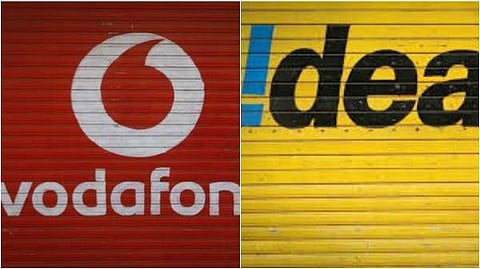

NEW DELHI: Vodafone Idea’s financial woes have brought its stock value crashing over the past two weeks, with the scrip recording a whopping 42 per cent decline, losing close to Rs 12,000 crore in market capitalisation since July 16.
While stock prices recovered slightly on Tuesday and Wednesday after crashing 27 per cent on Monday post its financial results, the scrip’s value stands at just Rs 6.84 on the BSE, against Rs 11.80 on July 16.
Monday’s crash, according to brokerages, was a direct result of the company’s poorer-than-expected performance during the first quarter, with consolidated net loss at Rs 4,873.90 crore. More concerning for the market, however, was the 4.3 per cent fall in revenues compared to the previous quarter and the steady erosion in its subscriber base as users shift to cheaper plans. Its financials for the quarter are not comparable with Q1 of the previous year, since Vodafone India and Idea Cellular completed their merger in August last year.
Incumbent telecom service providers like Bharti Airtel and Vodafone Idea have hemorrhaged subscribers and seen margins steadily contracting since the entry of Mukesh Ambani’s Reliance Jio in 2016. According to Vodafone Idea, it has lost another 14 million-odd subscribers during the quarter, and around 115 million subscribers in total over the past four quarters.
Analysts also note that Vodafone Idea’s recently introduced minimum recharge plans, which were expected to arrest revenue contraction, have instead resulted in customers halting recharges. It has also seen high-ARPU (average revenue per user) subscribers shifting to cheaper plans. “... the revenue dip was led by continued down-trading of high ARPU subscribers and low ARPU subscribers not recharging in 1QFY20... We estimate a majority of the decline to be led by down-trading,” Jefferies India noted.
While the company continues to derive synergies from the merger, with operating expenses for the quarter falling by close to Rs 1,500 crore, analysts say the fall in revenues is a concern. “The continued revenue decline, along with down-trading by high-ARPU subscribers, poses a significant risk on benefits accruing from opex synergies,” said Emkay Global Financial Services.
According to Edelweiss Securities, the company can improve its metrics if it manages to improve sales execution and higher network capacity in a rising ARPU environment. Adding to this, the Digital Communications Commission last week had also decided to back TRAI’s Rs 2,000 crore penalty imposed on the firm for interconnect guideline violations.